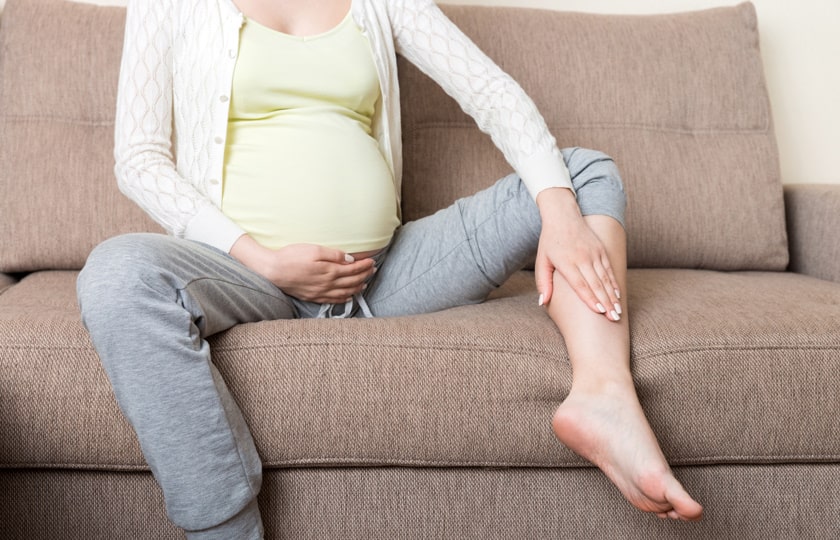
Understanding Varicose Veins During Pregnancy
Pregnancy, a journey that brings numerous changes to a woman’s body, can also usher in some less welcome guests – varicose veins. These unsightly and often uncomfortable vein issues are a common concern for expectant mothers. While they are typically associated with aesthetic discomfort, varicose veins during pregnancy can also lead to physical distress and health complications. Understanding the nature of these changes, how to manage them effectively, and when to seek medical intervention is crucial. In this comprehensive guide, we will delve into the intricacies of varicose veins during pregnancy, offering expert advice and tips, especially from renowned vascular specialist Dr Sumit Kapadia. Whether you are currently pregnant or planning a pregnancy, this article aims to arm you with knowledge and solutions to manage and treat varicose veins effectively.
Major Risk Factors of Getting Varicose Veins
The development of varicose veins, especially during pregnancy, is influenced by several risk factors. Being overweight or obese can significantly increase the pressure on leg veins, exacerbating the likelihood of varicose veins. Inactivity or leading an inactive lifestyle contributes to poor circulation, further increasing this risk. Leg injuries that impair venous return can also precipitate varicose veins. Pregnancy is a major risk factor due to hormonal changes and increased blood volume, which exert additional pressure on leg veins. Smoking can impair blood flow and weaken vessel walls, while oral contraceptive pills or hormone replacement therapy might alter vascular health. Women are more susceptible to varicose veins, potentially due to hormonal fluctuations and pelvic vein pressures during menstruation and pregnancy.
Watch the Video on YouTube
What Are Pregnancy Varicose Veins?
Pregnancy varicose veins are a specific manifestation of varicose veins that occur during pregnancy. These enlarged, swollen veins are typically visible on the legs and are a result of increased blood volume and hormonal changes that pregnancy brings. Unlike regular varicose veins, pregnancy varicose veins can develop rapidly and may cause significant discomfort due to the added pressure from the growing uterus.
Symptoms of Pregnancy Varicose Veins
Symptoms of pregnancy varicose veins include visibly enlarged, often blue or dark purple veins, swelling in the legs, aching or throbbing pain in the legs, worsened discomfort after standing for extended periods, and itching around the veins. Expectant mothers may also experience increased swelling and pain at the end of the day or after physical activity.
Causes of Varicose Veins While Pregnant
The primary cause of varicose veins during pregnancy is the increased blood volume and hormonal changes that relax vessel walls. Additionally, the growing uterus exerts more pressure on the veins in the pelvic region, impeding blood flow from the legs to the heart, leading to the formation of varicose veins.
Risk Factors for Pregnancy Varicose Veins
Key risk factors for developing varicose veins during pregnancy include a family history of varicose veins, being of an older maternal age, genetics, and lifestyle factors such as prolonged standing or sitting. Multiple pregnancies also increase the risk as the body undergoes these changes repeatedly.
How to Prevent Varicose Veins in Pregnancy?
Preventing varicose veins during pregnancy involves lifestyle and dietary adjustments. Regular, low-impact exercises like walking or swimming improve circulation and leg strength. Elevating the legs when resting helps in reducing vein pressure. Compression stockings are recommended for improving blood flow and reducing swelling. Avoiding prolonged standing or sitting, wearing comfortable shoes, maintaining a healthy weight, and eating a fiber-rich diet to prevent constipation can also help in preventing varicose veins during pregnancy.
Can I Treat Varicose Veins During Pregnancy?
Treating varicose veins during pregnancy usually focuses on alleviating symptoms rather than invasive treatments. Conservative measures like wearing compression stockings, lifestyle modifications, and regular exercise are recommended. Most invasive treatments, like sclerotherapy or laser therapy, are typically deferred until after 3 to 6 months of childbirth.
Treatment for Varicose Veins After Pregnancy
Once the pregnancy is over, and if varicose veins persist, treatments such as sclerotherapy, laser treatment, endovenous ablation, and surgical procedures can be considered. These treatments are effective in reducing symptoms and improving the appearance of the veins.
Learn More About How to Cure Varicose Veins during Pregnancy and Post Pregnancy
Book an Appointment for Varicose Veins Treatment
For personalized treatment options and expert advice, booking an appointment with a vascular specialist like Dr Sumit Kapadia is vital. As a seasoned varicose vein specialist and surgeon, Dr. Kapadia can provide comprehensive care tailored to each patient’s needs.
Conclusion
Pregnancy varicose veins can be a significant concern, but with proper care and expert advice, they can be effectively managed. Post-pregnancy, treatment options are available for persistent or severe cases. Dr. Sumit Kapadia, with his expertise in vascular health, offers the best care for expectant and new mothers facing varicose vein issues.

MBBS, MS, MRCS, DNB-Fellow
Dr. Sumit Kapadia
Dr. Sumit Kapadia / MR KAPADIA SUMIT a gold-medalist from Baroda Medical College, obtained his general surgical training and senior residency from SSG Hospital, Vadodara.

MBBS, MS, MRCS, DNB-Fellow
Dr. Sumit Kapadia
Dr. Sumit Kapadia / MR KAPADIA SUMIT a gold-medalist from Baroda Medical College, obtained his general surgical training and senior residency from SSG Hospital, Vadodara.



